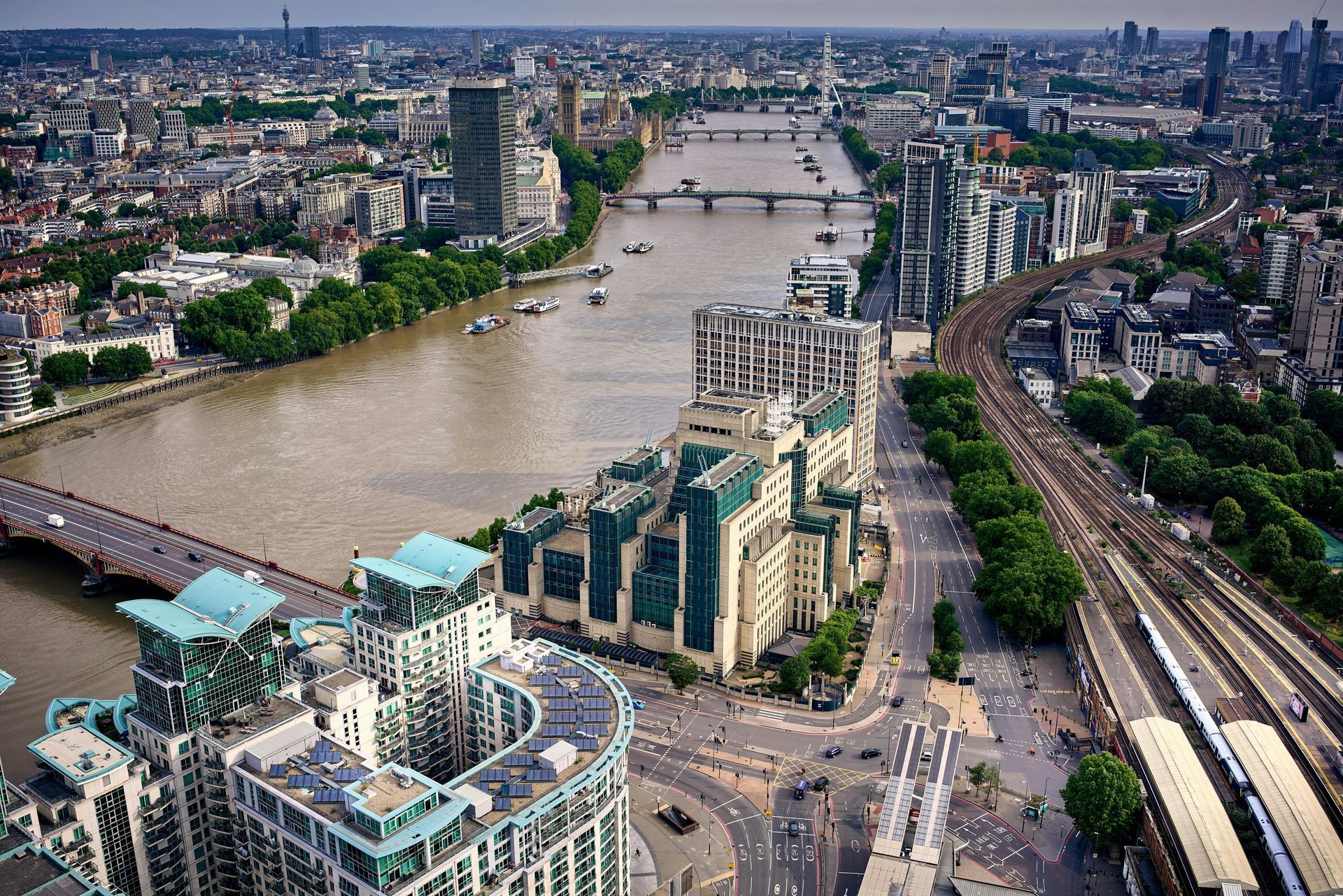End of the Non-Dom Era: Labour’s Tax Reform Triggers Wealth Flight
April 15, 2025
What You Should Know About the End of the UK Non-Dom Regime 6 April 2025

April 6th, 2025 marks the beginning of a major shift in UK taxation. Labour’s new tax reforms have officially scrapped the long-standing non-domiciled (non-dom) tax status — a move that targets wealthy individuals who live in the UK but, under the new non dom regime, have been able to mitigate UK tax on their overseas income and gains.
Contact Us
This change spells the end of a tax break that attracted many high-net-worth individuals (HNWIs) to the UK and is already causing ripples across the country’s elite financial circles.
The message is clear: if you live here, you pay here.
Let's break down what has changed.
What Was the Non-Dom Tax Regime?
The non-dom tax regime allowed individuals residing in the UK, who claimed their primary home (domicile) to be outside the UK, to avoid UK income and capital gains taxes by not bringing any foreign earnings or gains back into the UK.
This system made the UK an attractive location for individuals with international earnings.
We covered this in more detail here.
What Has Changed?
Since 2025-26 tax year, the government has implemented several significant reforms. These reforms include:
1. End of Non-Dom Status
All UK tax residents will now owe UK income tax on all global income and gains, regardless of whether these were brought into the country or not.
2. Inheritance Tax (IHT) on Foreign Assets
Non-doms could previously avoid UK Inheritance Tax on assets they held outside the UK; now individuals who have lived here for more than four years will be liable for IHT on all their global estate assets.
3. Temporary Reliefs
To assist the transition, temporary measures include the following:
- Tax Year 2025-26 will see a 50% reduction on foreign income tax.
- Capital Gains Tax (CGT) laws allow us to rebase overseas assets based on their value as of April 2019 for CGT purposes.
- Temporarily, bringing money from abroad may not incur full tax charges upon entering the UK.
Why Has the Government Made These Changes?
According to Labour, eliminating non-dom status will provide many advantages:
- Enhance tax fairness
- Raise extra funds to support public services
- Close longstanding loopholes used by the wealthy
Rising Tax Bills
HNWIs with overseas assets and income will now face significantly increased tax obligations that may have an effect on personal finances, family planning and wealth transference.
Making Decisions About Moving Abroad
Some individuals are already leaving the UK in order to settle in countries with more advantageous tax regimes. Some common destinations for relocation include:
- United Arab Emirates (UAE) does not levy income or capital gains tax
- Switzerland provides fixed annual tax arrangements for its most wealthy citizens
- Italy - flat tax of EUR100,000.000 on foreign income for new residents
- Monaco does not levy personal income tax for residents
Concerns Raised About Impact Within Industry Concerns are being expressed that this could lead to a decrease in:
- Investment into UK businesses
- Jobs funded by private wealth
- Donations to UK Charities
What About Entrepreneurs?
Many entrepreneurs utilise non-dom status to reduce tax on international business earnings, however, these changes could require:
- Establishing headquarters or structures outside the UK
- Reconsider ownership of intellectual property or company shares
- An investigation of how profits and dividends are managed is important to ensure long-term growth.
What Should Be Done Now?
If you or those you work with have been affected, taking immediate steps is key to their safety. Here are a few things you can do.
1. Consult With A Specialist Tax Advisor
Every situation varies. Seek tailored guidance from someone familiar with both UK and international tax regulations.
2. Evaluate Your Financial Structures
Evaluate how you hold assets - for instance through offshore companies or trusts. Any necessary changes must be implemented for optimal efficiency and compliance purposes.
3. Consider Relocating
If the UK's new tax rules no longer suit, you might wish to explore living elsewhere where tax liabilities would be lower. Be sure to carefully consider all legal, financial, and family aspects prior to making any decisions.
Summary
The changes to the non-dom tax regime mark a profound transformation for those who rely on global income and wealth for tax payments, especially those living abroad. Although intended to increase fairness, these reforms also pose challenges to those accustomed to using it.
Now is the time to review your plans, secure your assets, and seek professional guidance.
How Can We Assist?
At our offices in both the UK and UAE, we assist individuals, entrepreneurs and professional advisors in making well-informed decisions.
If you have any queries about this article or need advice then get in touch.
Are you living in Dubai and want to know what the new Spring Statement means for your financial future, then join us on 24th April 2025 at the Avani Palm Hotel Dubai, for an evening of expert analysis, practical advice, and strategic networking. Our Founder Andy Wood will discuss tax policies already outlined in this area – in relation to income and gains and, importantly IHT for Non-UK long-term residents – and any new nuggets unveiled by Mrs Reeves.

Introduction More wealthy UK residents are exploring life overseas ahead of the 2026/27 tax year. Higher UK taxes, political uncertainty and a desire for a different way of living are all pushing people to look at alternatives. Four destinations stand out for high-net-worth UK individuals as at late 2025: 1. United Arab Emirates (Dubai) 2. Portugal 3. Switzerland 4. Malta Each offers a different blend of tax advantages, residency options and lifestyle. United Arab Emirates (Dubai) - Dubai is now the default choice for many UK entrepreneurs and professionals. Tax For individuals, there is currently no personal income tax on salaries, bonuses or most investment income, and no local capital gains or inheritance tax regime for individuals. There is VAT and a developing corporate tax regime, but personal tax remains far lighter than in the UK. The UK–UAE double tax treaty helps reduce the risk of the same income being taxed twice and needs to be considered alongside UK residence rules. Residency Common routes for UK nationals include: Employer- or company-sponsored residence visas Remote-worker visas for those employed or self-employed abroad Long-term “golden” style visas linked to investment, property or professional status Retirement options for over-55s. (All require private health insurance and periodic renewal.) Lifestyle Dubai offers a high standard of living, excellent connectivity and a large, well-established British community. Housing and schooling are expensive and the lifestyle can encourage overspending, but for many the tax position and opportunity outweigh the costs. Best for: Maximising net income and building or scaling a business in a dynamic, international city. Portugal - Portugal appeals to those who want EU residency, a milder climate and a slower pace of life. Tax The old NHR regime has closed to new applicants and been replaced by a newer incentive framework (often referred to as IFICI) aimed at certain professionals and activities. The UK–Portugal tax treaty reduces double taxation, and Portugal does not operate a classic wealth tax, though property-related charges can apply. (It's signed and ratified but not yet fully in force as of early 2026, which may slightly affect immediate tax planning). Residency Post-Brexit, common routes for UK nationals include: D7 visa – for those with sufficient passive income (pensions, investments, rentals). D8 / Digital Nomad visa – for remote workers with qualifying income from abroad. Work and other residence visas tied to employment or specific skills. These can lead to long-term residence and, ultimately, citizenship if physical presence and integration tests are met. Lifestyle Cost of living is generally below the UK (though higher in central Lisbon and the Algarve), English is widely spoken in cities, and the public and private healthcare systems are well regarded. There are large British and wider international communities. Best for: Those wanting EU residence, good quality of life and a balance of tax and lifestyle advantages. Switzerland - Switzerland attracts UK families who prioritise security, discretion and top-tier services. Tax Tax is set at federal, cantonal and communal level, so overall rates vary widely by canton. Well-chosen cantons can be very competitive for both individuals and companies. Private capital gains are not generally taxed, but there is an annual wealth tax on net assets, with rules depending on location. For suitable non-working individuals, some cantons still offer lump-sum (forfait) taxation, where tax is based on living costs rather than worldwide income, subject to minimum levels and conditions. Residency As non-EU nationals, UK citizens use: B permits – time-limited residence, often linked to work L permits – short-term residence for specific assignments C permits – longer-term settlement after sustained residence and integration Wealthy retirees and non-working individuals may be able to obtain residence based on financial self-sufficiency and, in some cantons, lump-sum taxation. Lifestyle High costs are offset by excellent infrastructure, schools and healthcare (with compulsory private health insurance). International communities are strong in Zurich, Geneva and other cities, though social life can feel more formal than Southern Europe. Best for: Those seeking stability, discretion and first-class public services and education, rather than the lowest day-to-day costs. Malta - Malta is a compact EU state with a very familiar feel for UK nationals: English is an official language and the legal and business environment is comfortable for British professionals. Tax Malta’s tax system and UK–Malta treaty can be particularly attractive where you hold significant foreign-source income. Under the Global Residence Programme, qualifying individuals can pay a favourable flat rate on foreign income remitted to Malta, while foreign capital gains kept offshore are generally not taxed in Malta. There is no separate wealth tax and no classic inheritance tax, though duties may apply to certain Maltese assets. The separate “golden passport” (citizenship by investment) route has been struck down by the EU’s top court, but residence programmes remain available. Residency Options for UK citizens include: Employer-sponsored Single Permits combining work and residence The Global Residence Programme for financially self-sufficient individuals meeting property and minimum tax thresholds Digital-nomad-style visas for remote workers Long-term residence after several years of compliant stay Lifestyle Costs (especially rent and property) are typically lower than in the UK outside the most fashionable areas. English is widely used in government and business, healthcare is solid, and London is only a short flight away. Best for: Those wanting an English-speaking EU base with favourable treatment of foreign-source income and a tight-knit expat community. How to decide & next steps - All four countries can work extremely well for UK high-net-worth individuals, but for different profiles: Choose Dubai if your priority is low personal tax on active income and you are comfortable with a high-energy city. Choose Portugal if EU residency, climate and lifestyle matter as much as tax. Choose Switzerland if stability, education and healthcare are at the top of your list. Choose Malta if you want an English-speaking EU base with flexible options for foreign income. The right answer depends on your overall wealth, income mix, family plans and how tied you remain to the UK. If you would like bespoke, confidential advice on whether remaining UK-resident or relocating to Dubai, Portugal, Switzerland or Malta is the better strategy for your situation, you are welcome to get in touch to explore your options in detail.

